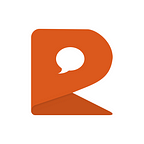Messaging is a saturated market. There are so many apps that allow one user to message another. This is why, when we started making Reach, we decided Reach would not be ‘just another messaging app’. Reach will be a lot more than that. We’re going to redefine messaging, and we need your help.
Today is that first public step on this long road to show the likes of WhatsApp, Kik and Facebook what the next stage of messaging actually is. We’ve got many more things to announce in the coming months, but we figured that we’d start off with one of the core values for Reach that we hold dear. Today, we announce our API.
Much like Twitter have their API, Reach will also have an API, so developers can build their own apps using Reach. This API is intended to be two things: open, and powerful.
1) Open: unlike Twitter and their restrictive API v1.1, Reach’s API will be fully open. If you don’t want to include a certain Reach feature, you don’t have to include it in your app. Likewise, if you’ve got a cool implementation of Reach that you want to build, then we’re not going to introduce restrictive token limits to stop you. Furthermore, we’ll ensure that developers get free swag from us during the development of their app. Our documentation will be hosted on our Dev Center and on GitHub, and you’ll be able to find more information on this in the coming weeks. We want to work with you guys, not against you!
2) Powerful: Reach’s API will be fully featured, with the aim of many third-party Reach apps being and released covering a wide range of platforms. Today, we’re making a steadfast commitment that, as long as Jamie and Phil remain at Reach, our app will use the same API as the public API. Open data is absolutely pivotal to the next stage of the web, and we need to support this in any way we can — hence, we’re making a commitment as big as this. We believe in the power of the open web, and this is reflected in our stance on APIs.
Of course, a commitment as big as this needs some testing first. Tomorrow, we are going to open up Dev Center pre-registration. We’ll be selecting a few ideas in a couple of weeks for us to ‘incubate’ in order to gain vital feedback on the overall developer experience. Incubated projects will having prominence within our Dev Center, via social media, and elsewhere, so we really hope that you take us up on this opportunity — and we look forward to working with you! If you’ve got an app idea, or simply just want to bookmark it for the future, then make sure you’re following @reachmsg for when we post the link.
As you can see, Reach has a new logo. It’s minimalistic and simple, but also conveys depth, which was our original aim for the logo. We’re currently working on our branding, which we’ll be showing off soon. There’s also going to be a promotional Reach video produced soon, but — again — more on that in a future update.
In Jobs-esque style, we’ve got one more thing: open-source. We’re relying on open-source to build Reach, and we figured that we need to give something back. Today, we’ve open sourced Logic, our JS form validator. This is the first of many things we hope to contribute over the coming months, and (as with all open source projects) we’d love it if you could get involved too. Projects earmarked for release in the future also include a simple way to integrate oAuth 2.0 into your Node.js backend, and the results of internal hackathons (again, more on this at another time).
Your support will be absolutely pivotal over the next few months, and we recognise that. We’re incredibly grateful for your support so far, and we’d really appreciate it if you could share this wherever possible! You can also keep up to date with happenings at @reachmsg. Here’s to the future.
The Reach Team.
